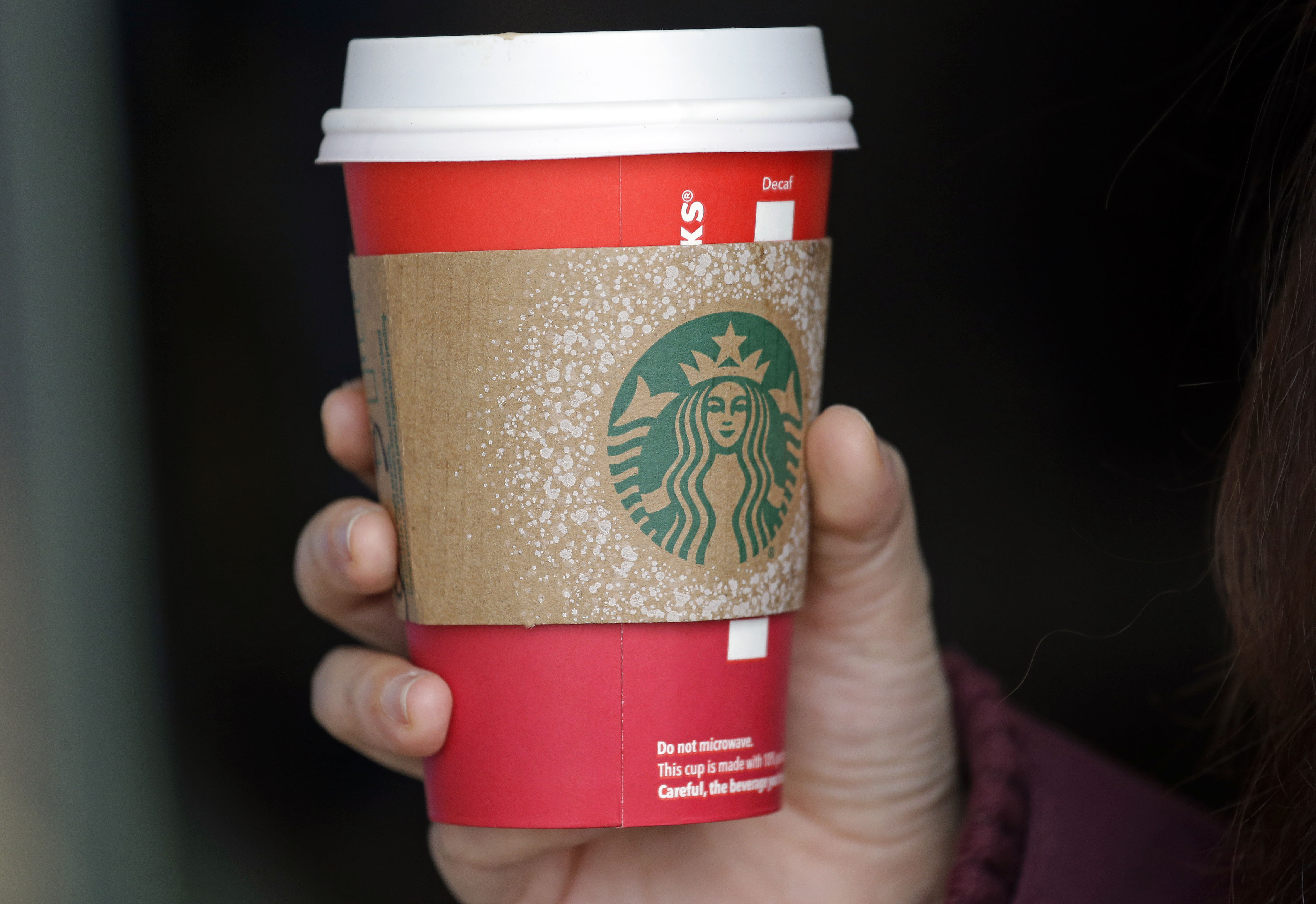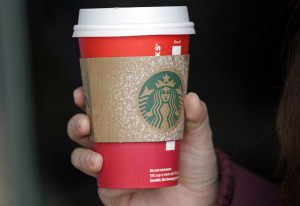
By Catherine Clements | Student Columnist

Starbucks’ winter brews are long awaited and so are their holiday cups. It’s out with the pumpkin spice latte and in with the peppermint mocha. This year’s featured cup is a red ombre design, and it is stirring up quite the controversy.
Last week former Arizona pastor Joshua Feuerstein posted a video on Facebook protesting that Starbucks “removed Christmas from their cups.” Feuerstein opposed Starbucks’ decision to do away with its Christmas-themed designs. The video went viral, reaching over 15 million viewers in just a few days. Feuerstein claimed Starbucks’ rationale for their simple design is “because they hate Jesus.”
Feuerstein urged viewers to “prank Starbucks” by telling them your name is “Merry Christmas,” and then posting a picture with your cup using the hashtag #MerryChristmasStarbucks.
Feuerstein’s position is ignorant. His behavior is not going to bring anyone to Jesus Christ. Just because Starbucks wants to make a cup that’s inclusive of all religions doesn’t mean they are against Christmas or hate Jesus. Protesting Starbucks’ red cups is outrageous.
As ridiculous as Feuerstein’s campaign may be, he does have some supporters. Nate Weaver, a student pastor at Crosspointe Christian Church in Sarasota, Florida, promised to never drink Starbucks again.
“I’m officially banning Starbucks from my life,” Weaver posted on Facebook Saturday. “With the CEO of the company telling those who support pro-life that they don’t want their money and now the Red Holiday cups with nothing that might tie to Christmas on them because they want to be politically correct.”
Feuerstein claims that American citizens need to do things “not … politically correct, just correct.”
Andrea Williams, of the United Kingdom-based organization Christian Concern, told Breitbart News Network that the plain red cups “[deny] the hope of Jesus Christ and His story.”
Everyone seems to be speaking out against the change, but Starbucks’ past cup designs of reindeer or ornaments were no more Christian than the plain red cup.
Jeffrey Fields, Starbucks’ vice president of design and content, said, “This year we wanted to usher in the holidays with a purity of design that welcomes all of our stories.” In reaction to Feuerstein’s video, Starbucks said their new cup is a “blank canvas.”
Featuring a solid red cup allows customers to find meaning for themselves. Besides, most people already associate the color red with Christmas, so although Starbucks doesn’t explicitly write “Merry Christmas,” they are still alluding to the holiday.
Though there are supporters of Feuerstein’s efforts, many are standing against him. One of his opposers, Ron Burr, tweeted that, “If you need a coffee chain to be your ambassador of Christ you need to re-examine your relationship w/God #MerryChristmas #Starbucks.”
People should stand up to Feuerstein, and no one’s religious views should rest on a coffee cup. Feuerstein’s overreaction to the Starbucks’ cup makes me embarrassed to call myself a Christian. It is people like Feuerstein that put a bad face to Christianity. Christmas is not about the color or design of a coffee cup; people do not need a cup’s design to cultivate their faith.
If Feuerstein wanted to start a revolution to put Christ back in Christmas, he could have begun so by treating people in a Christ-like way. What Feuerstein did was blame a barista for a corporate change. Telling his supporters to go and make a barista’s job more difficult isn’t tackling the corporate problem.
The idea of a war on Christmas isn’t a religious battle, it’s a capitalistic one. Companies are trying to figure out how to tap into more consumer markets. One solution to gain more business is to simplify Christmas decorations into holiday decorations. If selling more products means creating inclusive advertising, that is what businesses are going to do.
Starbucks isn’t the first company to “take Christ out of Christmas,” and they won’t be the last. Look at the material holiday Christmas has become. The Washington Post found that Americans spent $630 billion on holiday shopping last year. Businesses look for any and all ways to increase sales for their company.
Despite Feuerstein’s claims, Starbucks hasn’t completely parted with Christmas. They still use the name “Christmas Blend” for one of their signature holiday roasts and play Christmas music in their stores.
Starbucks is a secular, non-Christian company. They should not be expected to advertise Christmas. Starbucks is merely a place for drinking coffee, not a company with a religious agenda.
What we need to remember is the true meaning and purpose of Christmas. And we aren’t going to find this meaning in a cardboard cup.





Why is Duquesne,a Catholic university, a supporter of an irreligious company like Starbucks by locating a company store on campus?
Great article Catherine!